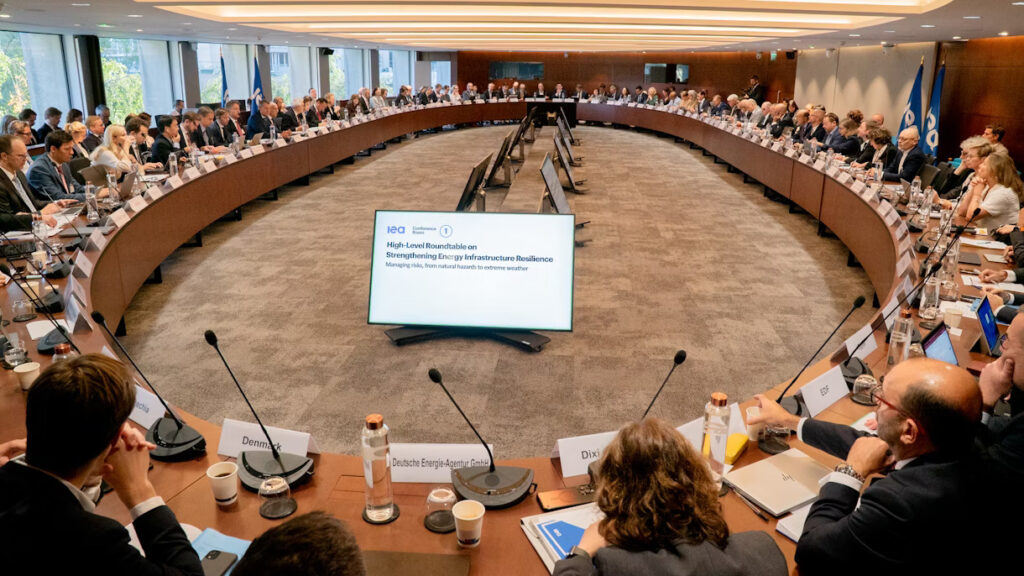The International Energy Agency (IEA) recently hosted a high-level roundtable at its Paris headquarters, bringing together nearly 90 delegations from more than 30 countries. Ministers and senior government officials joined representatives from regulators, insurers, investors, the private sector, academia and civil society to discuss ways to enhance the resilience of energy infrastructure against extreme weather, cyberattacks and other shocks.
IEA Executive Director Fatih Birol opened the event, followed by a special address from Laurent Fabius, former Prime Minister of France and Chair of the Circle of COP Presidents. Keynote speakers included Norway’s Minister of Energy Terje Lien Aasland, Lithuania’s Minister of Energy Žygimantas Vaičiūnas, and the Netherlands’ Vice Minister of Economic Affairs and Climate Policy Michel Heijdra. Sessions were chaired by senior officials from France, Japan, Spain and the IEA, with industry leaders and regional experts sharing insights throughout.
Discussions centered on integrating resilience into energy infrastructure investments and policy frameworks. Participants examined measures to prepare for risks posed by natural hazards and cyber threats, emphasizing the growing complexity of electricity systems in digital and electrified economies. Proposed strategies ranged from reinforcing physical assets and deploying advanced monitoring technologies to diversifying supply chains, enhancing early warning systems and ensuring adequate backup capacity.
IEA analysis cited at the roundtable noted that nearly 300 extreme weather events in 2023 disrupted energy infrastructure worldwide, primarily impacting the power sector and affecting more than 290 million households. Rising costs of disruption, such as increased air-conditioning demand during heatwaves—which has nearly tripled since the mid-1990s—underscore the financial stakes.
Speakers highlighted the urgent need for improved data collection on weather impacts, advanced planning, stronger cross-border coordination and innovative financing mechanisms. Representatives from the insurance sector stressed that effective risk reduction can lower capital costs for energy projects.
The role of the public sector was a focal point, with discussions on when industry can lead resilience efforts and where government regulation or support is essential. Many delegates stressed the importance of balancing consumer affordability with the need for substantial resilience investments and called for closer collaboration between governments and industry.
The roundtable reinforced the critical role of data, innovation, investment and cooperation in building energy systems capable of withstanding current and future challenges.
Source: International Energy Agency
















